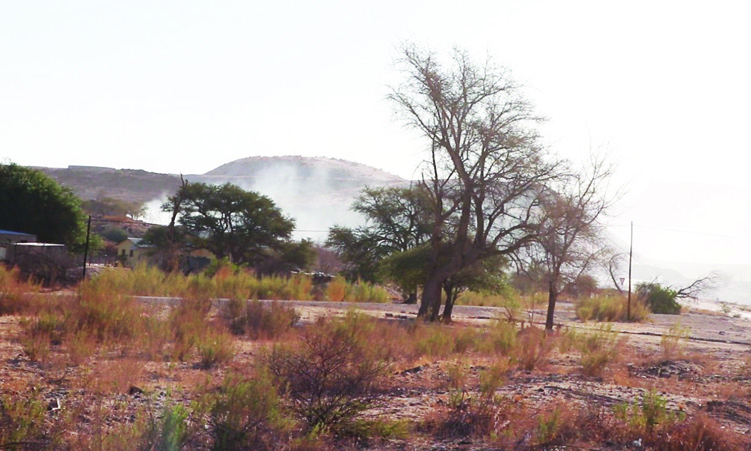• BRANDON VAN WYKFORTY of the 640 health extension workers who were promised employment by the health ministry through the health extension programme are camping out at the Zoo Park in Windhoek for the next four days in protest after the ministry failed to employ them as promised.
The ministry trained 640 people between 2016 and 2017 for six months in various regions of the country, but recently said it was unable to employ them due to budgetary constraints.
The group’s spokesperson, Willem Kayongo, said they planned camping out there from Monday to tomorrow, and then plan to march to the ministry of health’s offices on tomorrow.
Kayongo, who hails from the //Karas region, was in a group of 86 health extension workers trained by the ministry. During the training period, each trainee received N$2 500 per month.
“Through this, we were also provided a pay slip with an employment code,” he added.
He explained that they were trained on how to provide health services to their respective communities, advise people living with HIV, and also diagnose tuberculosis and refer patients to different doctors.
Training programmes were conducted in the Omaheke, Otjozondjupa, Ohangwena, Omusati, Erongo and the two Kavango regions.
“Every person who took part in this training programme has not been employed, yet the finance ministry claims we owe them money,” Kayongo added.
“We were told to leave our permanent jobs at the time of recruitment in order to take part in the training programme since trainees were required to attend the training programme on a full-time basis. We were very grateful for the opportunity to be able to train to help our communities in our own languages,” he noted.
He went on to say that this was a good idea from the ministry, but that after the programme ended, they were “dumped in the street like chicken”.
He added that health permanent secretary Ben Nangombe had asked them to be patient.
“We cannot eat patience. We need work. We need to feed our families,” Kayongo stressed.
“Where is the money that started this programme? It cannot be that the money just disappeared,” he lamented.
Martha Nauyoma, who came all the way from the Ohangwena region, said she trained as a community health worker for six months between 2016 and 2017.
“After [failing] to get employed when the training was done, some of us ended up homeless because we had left our permanent jobs for the training,” she said.
Nauyoma added that her insurance policies have likewise lapsed because of non-payment, while her bank account has been closed as a result.
“I have nothing to eat or wear, and no place to stay after my landlord evicted me due to the non-payment of rent,” she continued. Sofia Daniel from the Oshana region claimed that she moved from her home town to Windhoek after the community kept on harassing her, and asking when she would provide them with health services.
“People living with HIV whom I tested in my region were asking me why I had asked them for their status, and what I was planning on doing with that information. I could not give them answers, so I had to leave,” Daniel said.
She added that the ministry conducted training sessions in hotels, and all that money went to waste.
“Medicine was also wasted, as some drugs had now expired as well. The writing materials we used during the training period were also wasted,” she said.
Health ministry spokesperson Manga Libita said: “I can confirm that we are having a total of 620 unemployed community health workers all due to budget cuts.”
Libita also said the ministry was consulting other partners to come on board and assist with this situation.
Stay informed with The Namibian – your source for credible journalism. Get in-depth reporting and opinions for
only N$85 a month. Invest in journalism, invest in democracy –
Subscribe Now!






